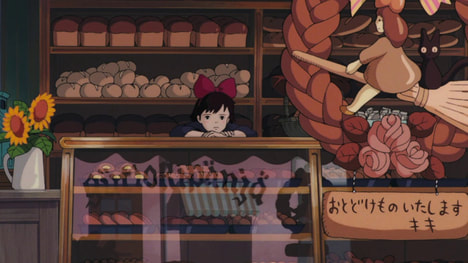TBD | A man and a woman in 1960's Hong Kong realize that their respective spouses are sleeping with each other. Directed by Wong Kar-wai Starring Maggie Cheung and Tony Leung Review by Jon Kissel |

The loneliness of In the Mood For Love is what makes it timeless and prescient, despite being a period film. Su and Chow both work long hours for little gain or advancement, and both repeatedly turn down offers of friendship or camaraderie from their landlords or coworkers. The trademark of this film is the musical interstitials, where Wong slows down the pace to watch beautiful people sitting or doing errands, but these interstitials, as elegant as they are, are missed opportunities themselves. Maybe Chow would have had a great time out with his degenerate gambler coworker Ping. Maybe Su would enjoy herself at mahjong with her landlord. Instead, they go on solitary noodle runs or are the last ones to leave the office. Middle-aged loneliness is a function of social anxiety, and if characters that look like Cheung and Leung can’t get over it, what hope do the rest of us have? Loneliness is a current American scourge but maybe it’s more universal than that.
The aforementioned music is what makes In the Mood For Love a film that often cycles to the forefront of my mind. I’ll never be as cool as Maggie Cheung on a noodle run, but what a thing to aspire to. That coolness is partly derived from her manner and her wardrobe, and partly from the film’s theme, which itself is pulled from an earlier film called Yumeji that should consider itself honored to have been co-opted by Wong. Other repeated songs by Nat King Cole are calibrated to the movements and moods of the film. Each time a musical motif reemerges, it’s always welcome because it signifies Wong at the peak of his powers, showcasing a little setpiece of the everyday turned into the ecstatic. This is apparent to the viewer even if the characters don’t realize that their mundane routines are being turned into cinematic legend.
I often remark about how I enjoy when good actors play bad actors, but I like it when good actors play good actors, too. Su and Chow playact as their cheating spouses, improvising how they think it might go and critiquing each other’s choices. What starts as playful turns affecting, especially for Su when she imagines confronting her husband. Neither is particularly happy in their marriage before the adultery revelation, but fully grappling with the betrayal is an admittance of failure and victimhood from a person who carries herself as neither a failure nor a victim. Her imagining of what it would be like to hear her husband admit he cheated is the best acting moment of the film, followed closely by Chow’s surprise that Su is reacting as she is. Part of In the Mood For Love is about recalibrated expectations and breaking out of a professional rut, but the realization of said rut can be an uncomfortable shock, especially in the able hands of Cheung. Her life to this point has got her a failing marriage and a rented room, the same as Chow, but ruts happen because they’re comfortable. The tragedy of the film is that for all the strengths of Su and Chow, they don’t quite have the imagination or the will to fully separate from their old lives. Hesitation dooms them to being apart when all signs point to their being together.
However, this is a film that ends with a joyous Cambodian reception of a former French colonizer. The cheering throngs have no idea that their lives are either going to be in grave danger or that they’re going to murder their countrymen in the next few years. All they know is that today is a good day. Wong includes this newsreel, I think, to convey how fleeting peace and happiness can be, and that not grasping it when it’s within reach is a sin. It’s a romantic thought from a romantic filmmaker at his most romantic and his most in control. A+
 RSS Feed
RSS Feed